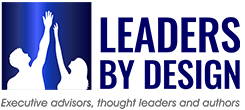One of the biggest challenges in our global workplace is ensuring that our key executives remain coachable.
Effective leaders value remaining adaptable, especially as shifting market dynamics demand continuous self-awareness and agility. As executives move up the ladder in organizations, they receive less and less feedback about their leadership impact on the people they lead and the organization. But by seeking, receiving, and using feedback from another executive, a human resource professional, or a leadership development coach, executives can maintain the potential to be more reflective, effective, visionary, and successful as leaders.
What’s the Alternative?
Without coaching, executives can suffer career derailment. These are the symptoms of failed leadership: inflated self-importance; ego gone awry; inability to work with different types of people; overuse of position power; poor use of communication and influence skills; inability to form functioning teams; and the inability to change. Simply put, executives must short-circuit the causes of derailment with personal resiliency and interpersonal awareness.
At a time when the world faces economic confusion, with much of the blame being put on a lack of good executive leadership, we must comprehensively re-examine our notions about leadership. The traditional, fear-based, command-and-control type of ‘management’ is still used too frequently and has failed to prevent executives from following their own short-sighted agendas. Also, workers’ productivity is limited by this type of ‘management.’
Executives should be able to move on to a more integrated understanding of ‘leadership’ involving all stakeholders. If the influence upon an executive’s practice of ‘leadership’ was derived from the traditional, linear models of ‘management’ of the past, then he or she may not be prepared for the non-linear world of a global economy. To lead and inspire others, an executive must know the story of ‘leadership’ and how it is different from the story of ‘management.’
Executives who remain ‘coachable’ will avoid professional derailment. Remaining coachable is driven by and succeeds because of the executive’s ability to remain open to personal feedback. If one truly wants to learn ‘leadership,’ it is important to make an honest and earnest attempt to learn, grow and develop specific collaborative skills.
Coaching helps executives apply positive ‘leadership’ behaviors and avoid actions that cause derailment.
Finally, coaching provides an excellent start for an executive to build a ‘leadership library’ and a foundation of knowledge in the field of leadership studies. Leader development is not about obtaining a “corner office” or a “lofty position title” in an organization.
It is about mastering the fundamentals of leader development as listed below:
- Understanding the short-term focus of “management” and using the long-term view of “leadership”
- Monitoring and managing a healthy and stable ego, emotional intelligence and professional ethics
- Using all the sources of power (Intrapersonal Power, Knowledge Power, Interpersonal Sensitivity, Position Power and Political Power) appropriately and effectively
- Learning to use and expand a “coachable leader’s” sphere of influence beyond the sole use of position power
- Communicating comprehensively to include listening, empathizing, attending and presenting well as a
- Learning the dynamics of work groups as they develop into effective and efficient teams
- Aligning work systems using the interplay between individual performance, team performance and work systems
It’s a long list of attributes–but a coachable executive will want to master each one. If coachable, an executive can seize opportunities for leadership that exist in everyday interactions with colleagues, bosses, customers, analysts, bankers, vendors, etc. How to recognize a coachable executive? He or she exhibits a healthy ego, integrity, emotional intelligence, knowledge of how to use power and influence, comprehensive communication skills, and know-how in developing individuals and teams collaboratively and in envisioning strategic change.
Click here to read the original version of this article by Peter J. Dean published on Wharton Magazine.




